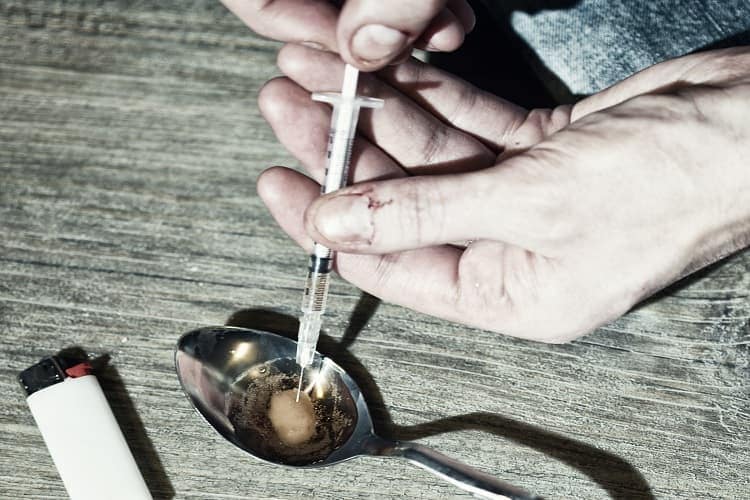Reducing Liver Cancer Among People Who Inject Drugs

People who inject drugs have a high risk of getting hepatitis B and hepatitis C.
Liver cancer can be caused by long-term hepatitis B virus or hepatitis C virus infections. People who inject drugs have a high risk of getting hepatitis B and hepatitis C.
The risk of developing liver cancer is low, but surviving liver cancer is very hard. Death rates for liver cancer are high, particularly among Hispanic or Latino and non-Hispanic American Indian or Alaska Native people. United States Cancer Statistics data show that, in 2020, for every 100,000 people, 8 new liver cancer cases were reported and 7 people died.
CDC Project Uses Proven Practices to Lower Liver Cancer
The hepatitis B vaccine can help prevent liver cancer. Testing and treatment for hepatitis B and hepatitis C also lower the risk of getting liver cancer. Because we know these actions work, CDC helps partners use these practices at the community level.
CDC conducted a project with four National Comprehensive Cancer Control Program (NCCCP) recipients in Iowa, Minnesota, Mississippi, and West Virginia, including one tribal organization (the American Indian Cancer Foundation in Minnesota). The project was designed to reduce viral hepatitis infections and liver cancer among people who inject drugs. Recipients also sought to improve knowledge and awareness of the link between injecting drugs and getting hepatitis and liver cancer.
NCCCP recipients worked with community partners to carry out activities that have been proven to help reduce hepatitis infections. Educational sessions were provided to teach patients and health care professionals about liver cancer risk. Partnerships with local organizations helped identify better ways to deliver viral hepatitis services and set up syringe services programs for people who inject drugs and have a higher risk of liver cancer.
Recipients Overcome Challenges
More than 600 health care providers and 40 patients participated in activities to increase knowledge and awareness of the link between injecting drugs and the risk of viral hepatitis and liver cancer. Recipients also conducted outreach to 145 shelters and camp areas for people experiencing homelessness. The goal of this outreach was to increase hepatitis B vaccination and testing for hepatitis B and hepatitis C among people with a higher risk of liver cancer. This project built on previous projects supported by the NCCCP.
Recipients faced several challenges, including the COVID-19 public health emergency, contract issues, staff limits and changes, and limited resources. Strong partnerships, ongoing technical assistance from CDC, and the ability to adapt to changes helped recipients conduct the intended strategies and activities.
Supporting Best Practices
The recipients successfully carried out their strategies and activities during the project period. The results of this project support the use of best practices from this project in the larger cancer control community. Other NCCCP recipients that support people who live or work in areas that put them at a higher risk of viral hepatitis may benefit from these best practices.
Citation
Momin B, Mezzo J, Nielsen D, Richardson A, Conners EE. Implementing promising strategies to reduce the risk for viral hepatitis and liver cancer among people who inject drugs. American Journal of Health Promotion 2023;37(7):982–987.